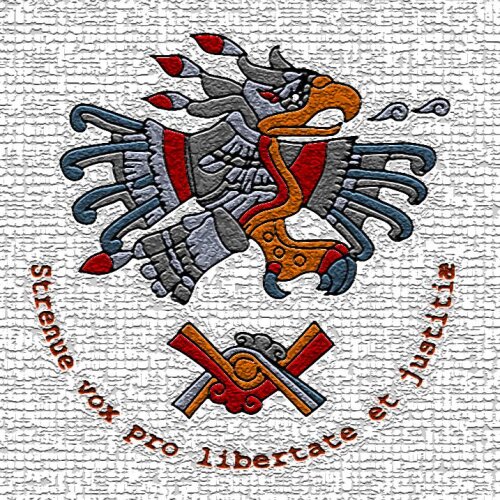Best Native People Lawyers in Mexico
Share your needs with us, get contacted by law firms.
Free. Takes 2 min.
Or refine your search by selecting a city:
List of the best lawyers in Mexico
About Native People Law in Mexico
Native people in Mexico, often referred to collectively as Indigenous peoples, compose a significant and diverse demographic within the country. As of the latest census, there are over 60 recognized Indigenous groups, each with distinct languages, cultures, and traditions. Indigenous rights in Mexico are complex, influenced by historical contexts, longstanding cultural practices, and contemporary legal structures. Mexican law recognizes the multicultural composition of the nation, and various legal provisions are in place to protect and promote the rights and cultures of Indigenous peoples. However, the application and enforcement of these laws can vary significantly across regions.
Why You May Need a Lawyer
Legal assistance may be necessary for Indigenous individuals or communities in several situations, including:
- Land Rights: Disputes over traditional lands and resources can arise, necessitating legal intervention to protect Indigenous lands against unlawful encroachment or exploitation.
- Discrimination: Instances of discrimination due to cultural differences or practices may require legal support to ensure rights are upheld under anti-discrimination laws.
- Cultural Preservation: Legal help might be needed to protect and preserve Indigenous languages, traditions, and community structures.
- Community Autonomy: Advocating for the recognition and implementation of Indigenous self-governance according to federal and state laws.
- Social Services: Ensuring access to education, healthcare, and other essential services that respect and accommodate Indigenous cultural practices.
Local Laws Overview
The Mexican Constitution and several international agreements recognize the rights of Indigenous peoples in Mexico. Key legal instruments include:
- The Mexican Constitution: Articles 2 and 27 specifically acknowledge Indigenous people's rights, including autonomy and the protection of their lands and natural resources.
- International Treaties: Mexico is a signatory to various international conventions, such as the International Labour Organization's Convention 169, which emphasizes Indigenous peoples' rights to preserve their cultural integrity.
- Federal and State Legislation: Various laws are enacted in different states to address specific Indigenous needs and rights related to land, education, and cultural preservation.
Frequently Asked Questions
What are the primary legal rights of Indigenous peoples in Mexico?
Indigenous people have the right to self-determination, cultural preservation, education, and access to their ancestral lands and resources.
Can Indigenous communities govern themselves?
Yes, Mexican law respects the cultural autonomy and traditional governance systems of Indigenous communities to a certain extent, as laid out in Article 2 of the Constitution.
How are Indigenous lands protected under Mexican law?
The law provides mechanisms for the recognition and protection of communal and ejido (community-owned) lands, which are specially tailored to meet Indigenous needs.
Are there specific educational rights for Indigenous children?
Yes, the education system aims to be inclusive, recognizing Indigenous languages and promoting bilingual, intercultural education.
What legal recourse exists for discrimination against Indigenous people?
The National Council to Prevent Discrimination and other legal channels can address discrimination cases, providing platforms for complaint and resolution.
How can Indigenous people participate in political processes?
Legal frameworks support Indigenous political participation at local, state, and federal levels, including the possibility of creating political parties or candidates drawn from Indigenous communities.
Is there support for Indigenous businesses or economic ventures?
Programs and initiatives exist to support Indigenous entrepreneurs, often connected with government agencies or NGOs focusing on sustainable development and cultural projects.
What languages are officially recognized by the government?
The government recognizes Spanish and 68 Indigenous languages, all having equal validity under the law.
How can Indigenous identity be legally recognized?
Indigenous identity is recognized through self-identification and community acknowledgment, often reflected in official records and documents.
Where can disputes involving Indigenous rights be resolved?
Disputes can be addressed through specialized legal mechanisms, including dedicated courts or judicial systems that integrate Indigenous customary law where applicable.
Additional Resources
Several resources can provide further assistance or information regarding Indigenous rights in Mexico, including:
- National Institute of Indigenous Peoples (INPI): A government agency dedicated to Indigenous affairs.
- Commission for the Development of Native Peoples: Offers programs and resources tailored to Indigenous communities' needs.
- Non-Governmental Organizations: Numerous NGOs work to support Indigenous rights, often providing legal assistance and advocacy.
- United Nations Permanent Forum on Indigenous Issues: Offers international support and resources.
Next Steps
If you require legal assistance regarding Indigenous rights in Mexico, consider the following steps:
- Identify Specific Needs: Clearly outline the legal issue or support you require.
- Contact Relevant Agencies: Reach out to organizations like INPI or appropriate NGOs for guidance and preliminary assistance.
- Seek Legal Counsel: Consult with a lawyer specializing in Indigenous rights to navigate the complexities of your situation efficiently.
- Engage with Community Leaders: Local Indigenous leaders often have valuable insights and connections that can facilitate legal processes.
Lawzana helps you find the best lawyers and law firms in Mexico through a curated and pre-screened list of qualified legal professionals. Our platform offers rankings and detailed profiles of attorneys and law firms, allowing you to compare based on practice areas, including Native People, experience, and client feedback.
Each profile includes a description of the firm's areas of practice, client reviews, team members and partners, year of establishment, spoken languages, office locations, contact information, social media presence, and any published articles or resources. Most firms on our platform speak English and are experienced in both local and international legal matters.
Get a quote from top-rated law firms in Mexico — quickly, securely, and without unnecessary hassle.
Disclaimer:
The information provided on this page is for general informational purposes only and does not constitute legal advice. While we strive to ensure the accuracy and relevance of the content, legal information may change over time, and interpretations of the law can vary. You should always consult with a qualified legal professional for advice specific to your situation.
We disclaim all liability for actions taken or not taken based on the content of this page. If you believe any information is incorrect or outdated, please contact us, and we will review and update it where appropriate.
Browse native people law firms by city in Mexico
Refine your search by selecting a city.
















